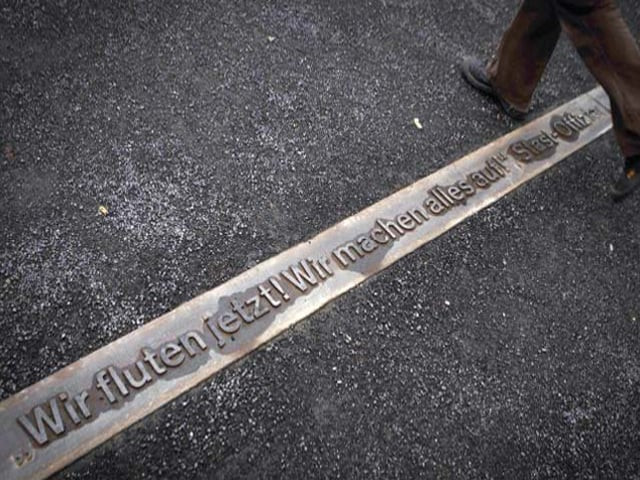Pakistan and India could learn from Berlin Wall lessons
When the Berlin Wall came down in 1989, it ended nearly three decades of separation between East and West Germany.

“People are the main political force for any country,” said German vice consul Gudrun Haider at a ceremony marking the fall of the Wall at the Goethe-Institut on Wednesday. Comparing Germany’s past with present-day Pakistan and India, she said the people in East and West Germany used to have somewhat the same kind of relationship. “Who knows, we might be surprised again,” she said, expressing optimism for a peaceful resolution to the bilateral conflict.
The Goethe-Institut is celebrating ‘20 years of German reunification’. Narrating the history of the public uprising that marked the war between communism and capitalism, Dr Christian Brecht, the German consul general, said that the fall of the Wall held significance not only for Germany but the whole of Europe and the world because it signified the lifting of the iron curtain that had divided the world. The two regions were actually united on Oct 3, 1990 with the signing of the unification agreement, which made Germany one federal republic.
Germany’s history teaches us that unexpected happenings can always occur and catch us offguard, said Haider. “It wasn’t just the Soviets but all of Europe that did not want Germany to unite because they were afraid it would regain its power.” But finally, people in East Germany who were suppressed under the communist leadership, took charge, she added.
Most of the visitors to the exhibition agreed on Germany’s importance in world history. Naeem, who said he had come to attend the lecture because of his interest in history, reiterated that Germany played a crucial role in shaping world politics.
Meanwhile, Dr Markus Litz, director of the Goethe-Institut, told The Express Tribune that the day marked freedom from Soviet tyranny. He said Germany’s peaceful public uprising was an example for South Asia — any objective can be achieved through a nonviolent struggle. Commenting on the situation in Pakistan, he said that people here must realise that dictatorships can be beaten by public force and they should never lose hope. “There is always a chance for peaceful change,” he added.
Published in The Express Tribune, November 12th, 2010.



















COMMENTS
Comments are moderated and generally will be posted if they are on-topic and not abusive.
For more information, please see our Comments FAQ